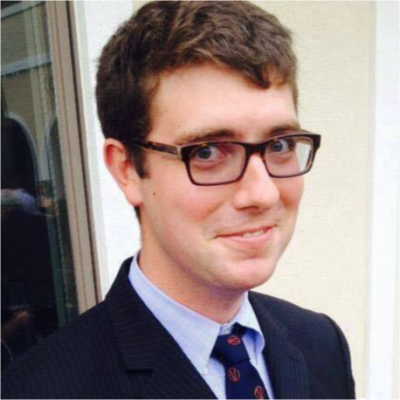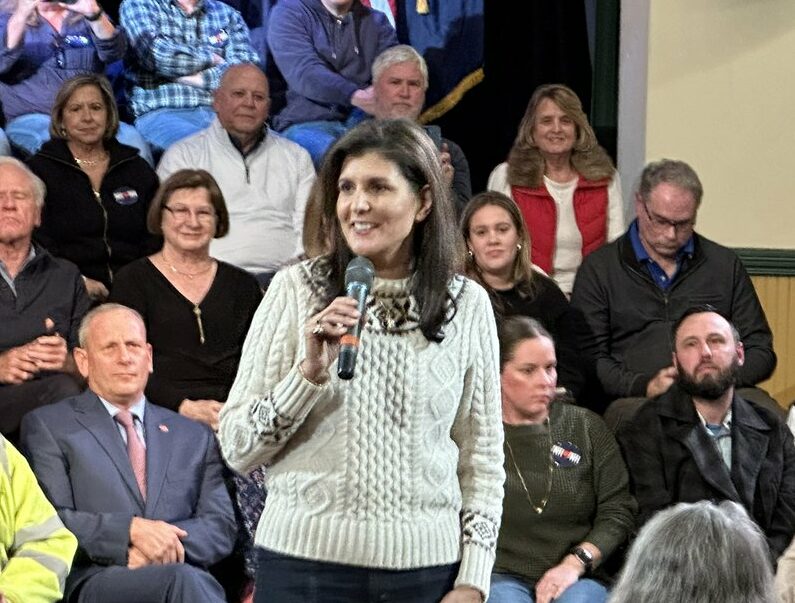Palms are sweaty, knees are weak, arms are heavy, and there’s complete silence in the room. Then, you’re handed the microphone. It’s not to battle rap, or to quote more Eminem, but it is perhaps something more thrilling. You are about to question the most powerful people in the world at a New Hampshire town hall.
You could ask a question from history: How did the American Revolutionary War start? You could ask a question about economics: Will the cost of food and basic life necessities for working people improve soon, or will stagnant wages, or the $7.25 minimum wage, improve soon? You could ask a question about foreign policy: How would your leadership ensure peace on earth?
The New England town hall tradition, a cornerstone of our democratic process, often goes unnoticed. It is perhaps one of the reasons the Democratic National Committee wants to cancel the New Hampshire presidential primary. It is the rare opportunity for a moment of civic engagement to change the course of a national election. The powerful are held accountable by the intellect of the citizen. Questions heard round the world.
An anonymous man, draped in well-worn flannel, at a campaign town hall in North Conway, N.H., put the formidable challenge to former Ambassador Nikki Haley: “What was the cause of the United States Civil War?” The answer was indeed heard round the world and will be a part of New Hampshire primary legend forevermore. Afterward, as a part of damage control efforts, a conspiratorial Haley called the man a “Democratic plant,” as though those were the only people who could be possibly interested in American history.
The power of the town hall combined with the power of social media can truly shake our political winds. However, most questions do not make news. This season, the State Employees’ Association (SEA), one of New Hampshire’s largest unions, held two town halls that made news for their bipartisan nature: one with Gov. Chris Christie and the other with U.S. Rep. Dean Phillips.
It was not just the candidates who represented both major political parties, but union members did as well. Witnessing them respectfully ask poignant, labor-centric questions that crossed party lines gave me pause. Americans living their values and embracing differences in a good faith effort to understand each other, find common ground, and address longstanding problems was inspiring.
Town hall meetings have been a New England custom since colonial times. But their origins are still shrouded in mystery. One interpretation suggests adaptation from 17th-century local vestry meetings in England. Another, more compelling, traces it back to New England colonists on the Mayflower, gathering in Massachusetts to adopt their rules of governance, the Mayflower Compact.
Post-American Revolution, with a clear separation of church and state, the town hall meeting retained its secular role, forming the bedrock of government for most New England towns today.
As the American experiment expanded westward, so did the town hall meeting. I attended one in California for then-Congresswoman Tulsi Gabbard in 2019. It was one of those poignant questions that eventually led me to work for her. Nahid Fattahi, an Afghan-American, asked Tulsi how we could course-correct American foreign policy so that we can be in harmony with the rest of the world. The sincerity of Nahid’s question and Tulsi’s answer stays with me to this day.
This experience inspires me to champion the New Hampshire primary and the town hall, preserving a process that compels potential leaders of the free world to field questions from diverse individuals. In conclusion, I extend gratitude to all the candidates who graced the Granite State with their town hall meetings. Regardless of the outcome, you’ve rendered a great service to our democracy, upholding the spirit of the U.S. Constitution and our First Amendment.


